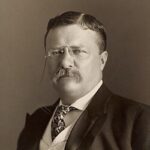Theodore Roosevelt’s trust-busting campaign fundamentally transformed American business regulation. The Northern Securities case in 1902 marked the beginning of his aggressive antitrust enforcement. This landmark decision targeted J.P. Morgan’s railroad monopoly, signaling federal commitment to competitive markets.
The Northern Securities Decision
Roosevelt’s Justice Department filed suit against the Northern Securities Company in 1902. This holding company controlled major railroads across the Northwest. The Supreme Court ruled in favor of the government in 1904, ordering the company’s dissolution. This victory established Roosevelt’s reputation as the “Trust Buster.” 📊
Expanding Trust-Busting Efforts
The Roosevelt administration initiated 44 antitrust suits during his presidency. Major targets included Standard Oil, American Tobacco, and DuPont Corporation. His actions restored competitive pricing in essential industries. Consumer protection became a federal priority for the first time. ⚠️
Regulatory Framework Development
Roosevelt strengthened the Sherman Antitrust Act through vigorous enforcement. He established precedents for federal business regulation. The administration created new oversight mechanisms for corporate behavior. These policies balanced business interests with consumer protection. 💰
Impact:
Roosevelt’s trust-busting policies created lasting changes in American economic structure. The immediate impact included restored competition in transportation, oil, and tobacco industries. Consumer prices stabilized as monopolistic price manipulation ended. Small businesses gained opportunities previously blocked by corporate giants.
Long-term Economic Consequences
Trust-busting established the federal government’s regulatory authority over big business. Subsequent administrations continued Roosevelt’s antitrust legacy through additional legislation. The Clayton Act of 1914 expanded regulatory powers further. Modern antitrust law traces its foundations to Roosevelt’s pioneering efforts. 📉
Political and Social Transformation
Roosevelt’s actions shifted public opinion toward supporting business regulation. Progressive reformers gained momentum from his trust-busting successes. Corporate leaders adapted business practices to comply with new regulations. The “Square Deal” philosophy emerged from these regulatory victories. 🔥
International Influence
American trust-busting policies influenced international competition law. European nations studied Roosevelt’s regulatory approaches. Modern antitrust frameworks worldwide reflect his pioneering work. The precedent of government intervention in monopolistic practices became globally accepted. 🌍
Roosevelt’s trust-busting legacy demonstrates effective presidential leadership in economic regulation. His decisions protected consumer interests while maintaining free market principles.
